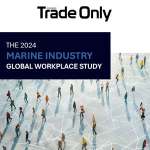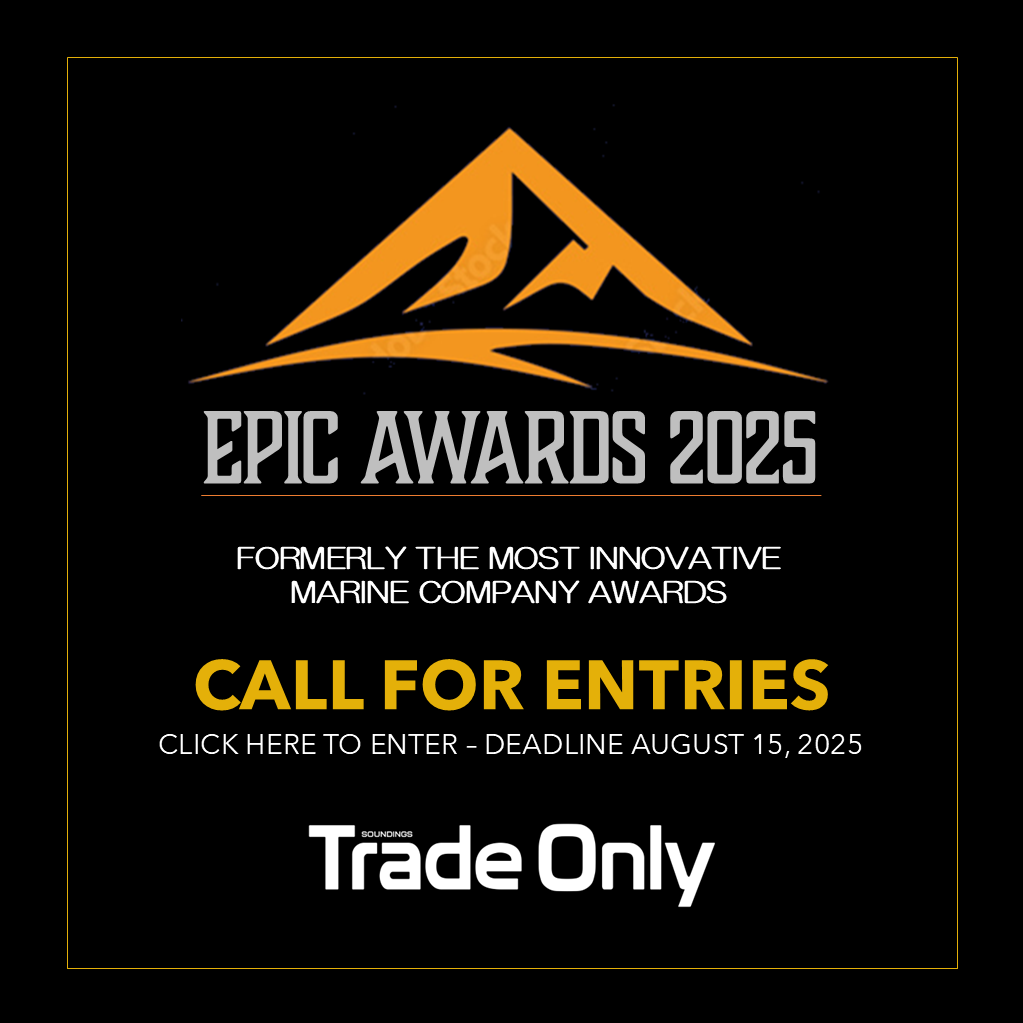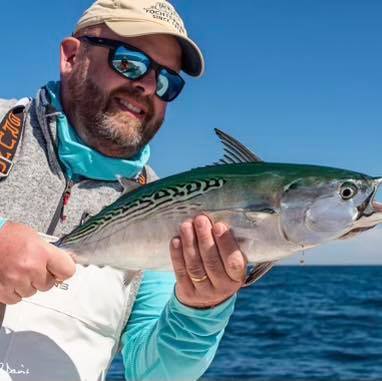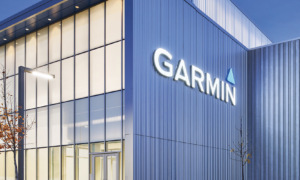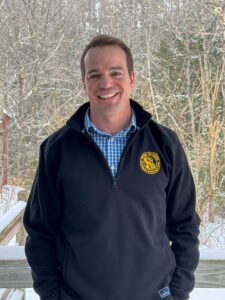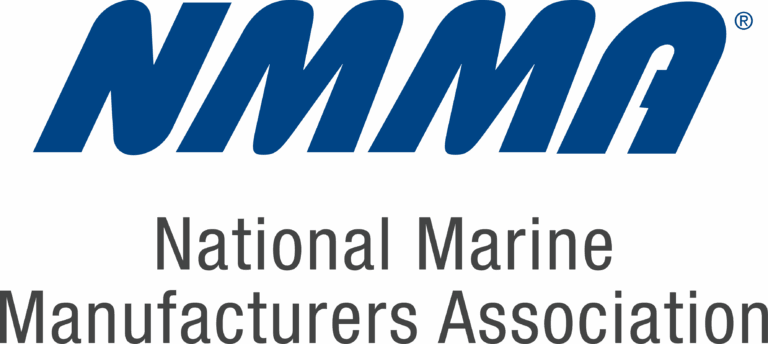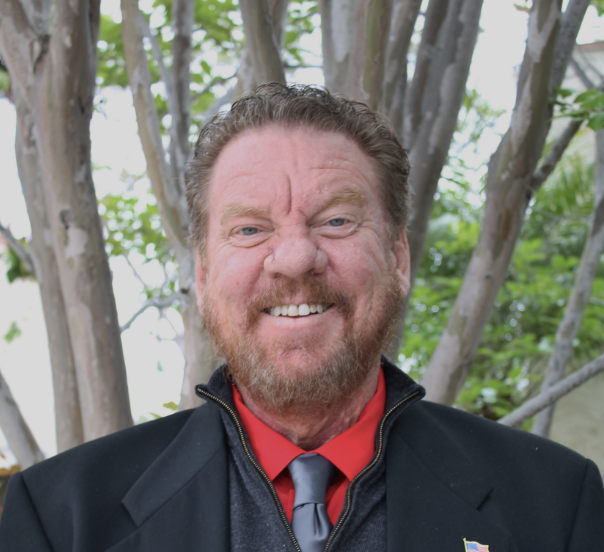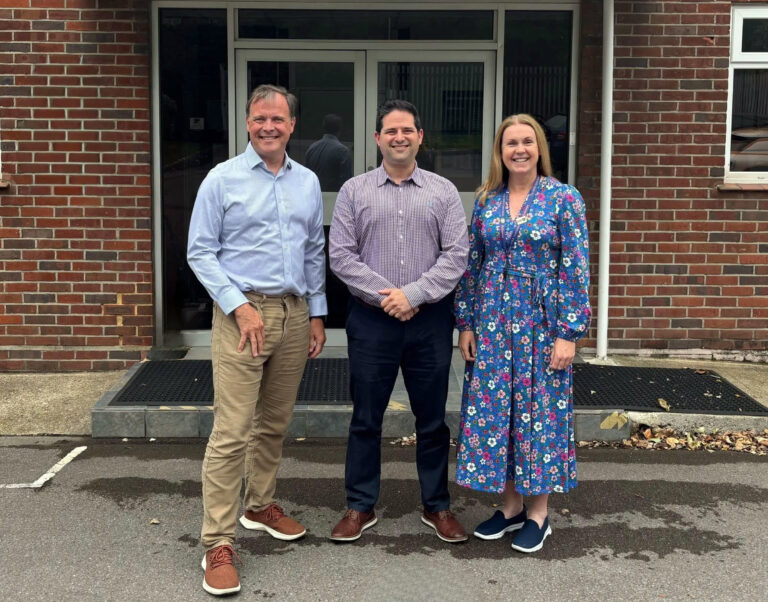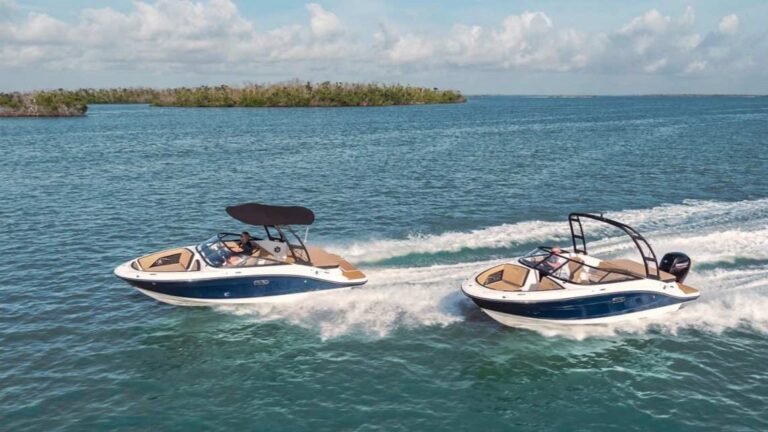As the National Marine Manufacturers Association prepared for its biggest advocacy event of the year — the American Boating Congress in Washington, D.C., May 8-10 — Soundings Trade Only met with Robyn Boerstling, who assumed the role of NMMA senior vice president of government relations this past December.
Boerstling has experience with advocacy and policymaking going back nearly 25 years, when she started as a lobbyist in Hartford, Conn. Additionally, she worked as the director of congressional and public affairs for the United States Maritime Administration, and as a special assistant for the office of secretary and assistant secretary for transportation policy at the U.S. Department of Transportation.
Most recently, Boerstling was vice president of infrastructure, innovation and human resources policy at the National Association of Manufacturers, where she worked for more than 15 years.
Boerstling has a passion for small businesses and the people who run them. She has been on the water since she was a toddler, and she grew up with a father who was a harbor pilot, putting her in touch with working waterfronts around Long Island Sound.
This interview has been edited for clarity and length.
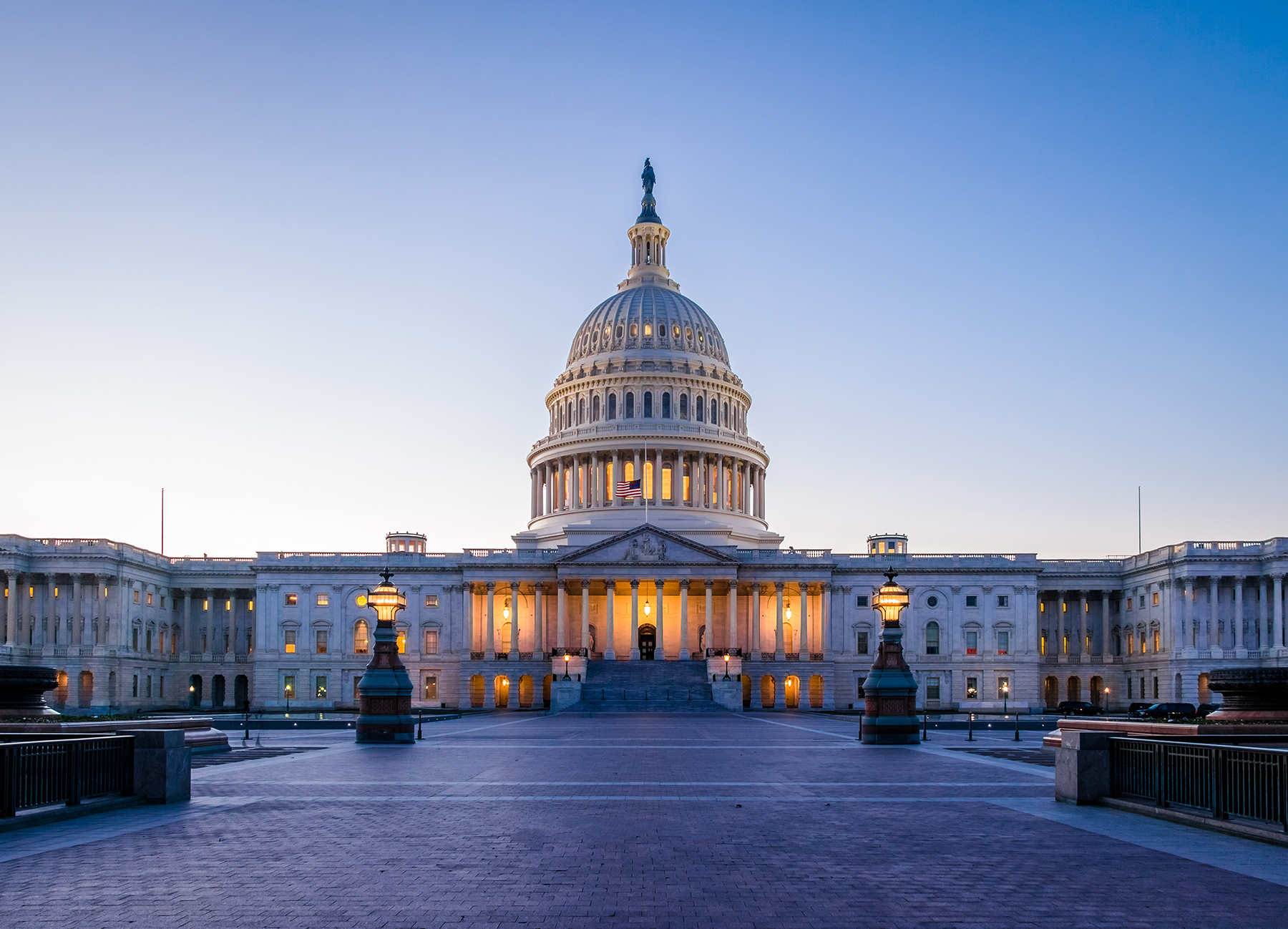 Diegograndi - stock.adobe.com
Diegograndi - stock.adobe.comTell us about your professional background.
I came to Washington in 2001, right around the time September 11 happened. I was in the mix for an opportunity in the Bush administration, and then everything kind of went on hold because a national tragedy had occurred. Then, suddenly, I got a phone call: “When can you start?” I came into the U.S Department of Transportation’s Maritime Administration on the heels of a significant tragedy. At the time, there was a disaster recovery effort, war footing and a lot of balls in the air that were being managed by a multitude of federal agencies and the president. Coming in at that time was a pivotal moment and really shaped me. I was in my twenties. It was integral to my development and how I’ve learned to respond and manage public-policy issues.
Then, not long after September 11 — just a year or two later — we had hurricanes Katrina and Rita on the Gulf Coast. They were very disruptive natural occurrences. Working with disaster response as it impacted the maritime world was certainly additive to my career developments.
Six years at the U.S. Department of Transportation trained me well for a lot of situations and eventualities. It helped me assist the manufacturing sector to build up its advocacy on transportation and infrastructure. I was at the U.S. Department of Transportation doing a whole variety of maritime and surface transportation issues for two terms of the Bush administration, and then joined an esteemed manufacturing trade association for a robust 15 years.
That was a long run.
Yeah, it was a great, I mean, a wonderful experience. Great people. Fascinating time, too, especially with the 2008 economic downturn, banking crisis and a lot of the big changes in manufacturing during the auto-industry collapse.
I had a very discrete mission because it had become increasingly challenging for surface transportation bills to move through Congress. The conservative wing of the Republican Party was becoming a bit more adamant about spending issues and really questioning the value of infrastructure investments. The business community had the complete opposite view, in that infrastructure investments were integral to national competitiveness, and we should be putting the gas on infrastructure, not the brakes.
 Felix Mizioznikov - stock.adobe.com
Felix Mizioznikov - stock.adobe.comHow did you land your position at the National Marine Manufacturers Association?
When I saw that there was an opening for a role at the NMMA, I was very excited about it because I had spent a lot of time on the water growing up. I spent all my free time on the beaches from toddler age on up. My dad was an avid sailor, but his career was also on oceangoing ships as a harbor pilot. There was a lot of connectivity there, and we had very close family friends who were recreational boaters and constantly allowing us to be on the boats with them. Boating is about sharing experiences. It is certainly an individualistic activity if you want it to be that way, but a lot of people who boat are very social. They’re eager and willing to share.
The experience with others, just going on the water — going fishing, going tubing, going sailing, whatever it is — we were very fortunate and blessed to have superclose family friends. One had a Bertram, and the other one had a Tiara. I remember those boats fondly. And I loved being out on Long Island Sound around the Thimble Islands or Black Rock Harbor with them. It was a great experience to be on the boats. My parents were not necessarily ready and willing to make that kind of investment, and my dad’s career was on the water. For him, I don’t think that was the place where he always wanted to be.
Through my dad’s profession, I have an enormous respect for people who not only recreate on the water, but also make their livelihoods on the water. I think that’s important in this role because there’s a strong manufacturing component with so much of what is sold in the U.S. being made in the U.S. by the small-business element of the marine sector. I truly am passionate about small-business issues.
What are the challenges of doing advocacy work on Capitol Hill? What roadblocks do you run into?
It certainly depends on the circumstances and the issue. I mean, I think there are some general operating challenges. Intense partisanship is one factor. Then there’s the changing dynamic of staff on Capitol Hill and in Washington, D.C. Getting to know a staffer and developing that relationship over time can change because the individual that you’re developing the relationship with could leave or take on a new role. That evolving dynamic of being ready and willing to meet new people requires a level of diligence, flexibility and certainly risk.
The challenges come with the territory when you’re representing an industry. I truly believe in the constitutional right for an individual or company to petition the government. I think that’s a really important role for anyone who is in federal affairs or advocacy — to understand that constitutional right and bring the best data and bring the best arguments and the impact forward to the lawmaker who could support change.
We’re so divided as a country that it must be challenging to get the real message through to representatives.
I think there are two elements to that. One is that the NMMA has a very positive bipartisan reputation in Congress and is a well-known trade association with a great brand. People understand recreational boating across the political spectrum. That really helps, having the weight of the association and the positive reputation of bipartisan engagement.
Also, something that I have learned is that it is about policy, not politics. We must be strong policy advocates and understand the benefits of our policy requests or opposition to an issue. It really is about jobs. It’s about businesses, and it’s about an important activity. People truly enjoy their time recreating. Whether it be hiking, running or RVing, it is an extremely robust sector that hits all four seasons. As an economic engine, it has a $1.1 trillion impact, broadly speaking, when you put the whole recreation economy together, with marine being the top sector within that mix.
You mentioned a passion for small businesses. What do you find rewarding about advocacy work?
I enjoy the people and the passion that they have for what they do, and how they make a difference. Among boatbuilders and suppliers, everyone knows their mission and what they stand for and how they contribute to their communities, to their economies and to people’s wellbeing. There’s just a strong notion that life is better on the water, and everyone is there to support that, and there’s a lot of truth to that. I went fishing in Florida recently, and it was just a really cool experience with one of my kids, so they could share in the experience, as well.
What did that experience teach you?
If you think about all the charter-boat operators in coastal communities and the economic value that they’re bringing, their jobs are not easy. They’re weather-dependent, season-dependent, dependent on the economy. Do people have expendable income to put toward boating and fishing? I think not everyone needs to own a boat to enjoy the hobby. There’s a lot of different ways to enjoy boating, whether it be through friends and relationships or rentals and charters, and you have sort of new operating models with boat clubs around the country that are providing access.
To me, access is one of the important issues that we work on at the NMMA. It’s not just the physical access and making sure we have boat ramps and the access points available to boaters, but also the services and being able to actually access a boat and try it out or use it for a period of time without necessarily having to make the full investment. There are different ways to enjoy the hobby, and I think this industry has been very attuned to consumer needs and desires.
 Tomas - stock.adobe.com
Tomas - stock.adobe.comWhat’s happening with the proposed NOAA speed restrictions involving the endangered North Atlantic right whale?
This proposal was introduced in 2022 and is one of the most important regulatory issues to happen to this industry, with serious impacts up and down the Eastern Seaboard. Marine mammal management and, specifically, ensuring the robust health of the right whale species is a priority. I think it’s important that policymakers and regulators understand that we share that same commitment, and there’s no one in our industry sector who wants to be an adversarial posture or position with the species. We just really believe there is a different way to get at the solution.
The solution that was proposed in 2022 was very ill-informed in terms of what the impacts on the recreational boating sector would be. The economic impacts were woefully underestimated. The industry has been working hard at developing and devising solutions because restricting most any boat to 10 knots is not particularly safe. I think that is the number-one issue that must be reconciled. Ten knots in currents, tides, wind and other varying conditions does not necessarily work for recreational boats. We know that the Coast Guard wasn’t involved in the drafting of this rule.
We learned in early March that the proposed rules went over to the White House for final interagency review. Now we’re in this process where it could be in the review stages for the next 30, 60 or 90 days. Thankfully, we have an opportunity as an industry sector to make a final push to articulate our continued concerns with the rule as proposed because technology was not adequately considered as part of a mitigation strategy. We believe that with some critical inputs from NOAA and some industry collaboration, we could be in a much better place to cooperatively work on management of the right whale species as partners rather than interests that are kind of working at cross-purposes.
NOAA assistant administrator Janet Coit came to the Miami International Boat Show and went to the technology pavilion and really saw what the capabilities are. I think we certainly have more work to do on the education and the collaboration part, but the rule as drafted is not workable, and we are interested in a more workable solution. Certainly, I think we were very clear in our comments that as drafted, it can’t go forward.
It sounds as if the primary alternative the NMMA is pushing is using technology to locate these whales and alert boaters.
Correct. There’s an opportunity to not just rely on the boating community to understand where the whales are, but also for NOAA to push out the information a little bit differently than a whale app or a website. I think there’s a more evolved and sophisticated way to work with recreational boating to create this in a much more dynamic way than it is currently playing out.
What advocacy priorities will the NMMA be talking about at the American Boating Congress in May?
We have been very clear in putting our issues in several different buckets or categories. You’ve got access as a key issue. Looking at Army Corps of Engineers biennial reauthorization is taking place, and making sure that the LAKES Act is included in the Army Corps of Engineers reauthorization effort is certainly one piece.
Making sure Congress understands the intricacies of aluminum extrusions and anti-dumping — we have that appropriately covered and addressed, and Congress will be an ally in helping the administration understand the impacts of tariffs.
Number three, I would say manufacturing issues. There’s always a quest to make sure we’re addressing some key tax issues that may not be on the ABC agenda, but that’s always on our mind, the business climate and business environment.
The Ricardo study that ICOMIA sponsored and that the NNMA has been using as a mantle to talk more about sustainable fuels is also important. We are studying where public-private partnerships can be deployed to support the distribution of sustainable marine fuels, because there are a lot of choices and options that are emerging, and we want to make sure that the infrastructure is there to really support the proliferation of sustainable marine fuels.
 Raimundas - stock.adobe.com
Raimundas - stock.adobe.comWhat’s the status of tax legislation that allows manufacturers to fully deduct research-and-development costs in the year they were incurred?
It passed the House, but it’s stalled in the Senate. We need a tax code like this that supports next-generation investments in technology. We are for restoring the research and development expensing, addressing the interest deductibility limits, and reinstating full expensing for capital investments. There’s this strong desire to innovate, but we’ve got to have an eye on what we’re doing here in our country because our competitors overseas, they want to increase market share, and they have the access to incentives and partnerships. We don’t want Congress to necessarily wait on this.
A lot of dealers, retailers and builders say they have no idea where to start with being heard in government. What advice would you give them?
The American Boating Congress is critically important for participation. It’s a great industry convening for the entire ecosystem to really come together and articulate shared priorities to elected leaders, but also, it’s not a one and done. I think with the really strong, robust advocacy agenda that we have, we can also continue the conversation so that ABC is not a once-a-year occurrence, but that we’re taking those stories, that we’re taking the anecdotes, that we’re taking the impacts that everyone feels and experiences, and making sure that policy leaders are on top of them on a regular basis. Representatives really enjoy site visits and the ability to meet boating industry constituents. It is our role to facilitate those meetings, and it is very rewarding.
This article was originally published in the May 2024 issue.

